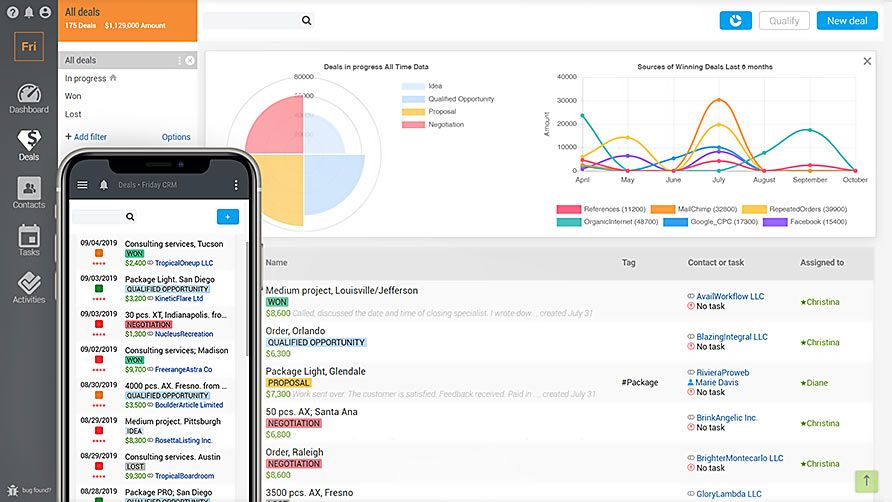
As an HVAC contractor, your success depends on effectively managing your sales process, tracking customer interactions, and nurturing leads. This is where Customer Relationship Management (CRM) software comes into play. CRM sales technology can empower HVAC contractors to streamline their sales operations, improve customer relationships, and increase revenue. In this article, we will explore how best CRM for contractors can unlock success by harnessing the power of CRM sales technology.
The Benefits of CRM Sales Technology for HVAC Contractors
CRM sales technology offers a wide range of benefits for HVAC contractors. By leveraging CRM software, contractors can:
Improve Customer Relationships
- Keep track of customer interactions and communication history.
- Personalize communication and offer tailored solutions based on customer preferences.
- Send timely reminders for maintenance services, leading to increased customer satisfaction.
Streamline Sales Operations
- Centralize customer data, including contact information, service history, and sales opportunities.
- Automate lead management processes and track sales pipeline more effectively.
- Generate reports and analytics to identify sales trends and opportunities for improvement.
Increase Revenue
- Identify upsell and cross-sell opportunities through better understanding of customer needs.
- Improve sales efficiency and productivity by automating repetitive tasks.
- Retain existing customers and attract new ones through personalized marketing campaigns.
How to Successfully Implement CRM Sales Technology
To harness the full power of CRM sales technology, HVAC contractors should follow these best practices:
Choose the Right CRM Software
- Look for a CRM solution specifically designed for the HVAC industry.
- Consider factors such as ease of use, scalability, and integration capabilities.
- Ensure the CRM software aligns with your business goals and objectives.
Provide Training to Your Team
- Invest in training sessions to familiarize your team with the CRM software.
- Ensure all team members understand how to input and access customer data.
- Encourage adoption of the CRM system by highlighting its benefits and efficiency gains.
Customize the CRM System to Fit Your Needs
- Configure the CRM software to capture relevant data points for your HVAC business.
- Create customized fields and workflows to match your sales process.
- Tailor reports and dashboards to track key performance indicators and sales metrics.
Measuring Success with CRM Sales Technology
To gauge the effectiveness of CRM sales technology, HVAC contractors can track key performance indicators (KPIs) such as:
Sales Conversion Rate
- Measure the percentage of leads that convert into paying customers.
- Identify trends and patterns in the sales conversion process.
- Optimize sales strategies based on conversion rate performance.
Customer Retention Rate
- Calculate the percentage of customers retained over a specific period.
- Monitor customer satisfaction levels and address any issues promptly.
- Implement loyalty programs to increase customer retention.
Revenue Growth
- Track revenue generated from sales activities facilitated by the CRM system.
- Analyze revenue growth trends and identify areas for revenue enhancement.
- Set revenue targets and monitor progress towards achieving them.
Conclusion
CRM sales technology has the potential to transform the way HVAC contractors manage their sales processes, engage with customers, and drive revenue growth. By harnessing the power of CRM software, contractors can unlock success and gain a competitive edge in the industry. To maximize the benefits of CRM sales technology, contractors should carefully select the right CRM solution, provide adequate training to their team, customize the system to fit their needs, and measure success through key performance indicators. With CRM sales technology as a strategic tool, HVAC contractors can build stronger customer relationships, streamline sales operations, and ultimately achieve business success.

Leave a Reply
You must be logged in to post a comment.